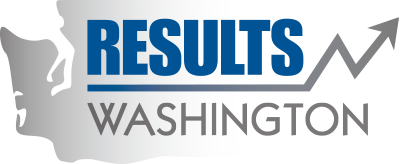Archived: Decrease Juvenile Offender Recidivism
Youth deserve opportunities for rehabilitation and communities deserve to be crime-free. The rehabilitative services provided by the Department of Social and Health Services' Juvenile Rehabilitation office (JR) are intended to develop knowledge, skills and abilities in youth that provide them opportunities for successful return to their community. Re-commitment to the state juvenile rehabilitation program shows that a youth has been unsuccessful at re-entry.
Many factors can impact youth remaining crime-free including: poverty, mental health and substance abuse problems, physical and learning disabilities, unemployment and lack of job skills, lack of stable housing, lack of stable family support or role models, and low educational achievement.
Currently, 92% of youth released do not get recommitted to the state juvenile rehabilitation program. However, we know that this does not mean they are living a crime-free life, have been able to find stable employment, or have completed their education. A JR study found that 55% of youth committed a felony within 3 years of release. A key factor in helping released youth lead crime-free lives is evidence-based and family-focused parole services. Due to budget cuts, approximately half of youth that leave JR do not get parole services, increasing the likelihood of re-offending.
We are:
- Advocating for the restoration of parole services;
- Partnering with local schools to develop an action plan regarding a positive and stable transition from institutional education to a community school;
- Developing a strong re-entry plan for each youth that includes vocational assessment and skill development;
- Developing partnerships with communities that will increase the pool of trained mentors available to youth during re-entry; and
- Developing vocational programs to prepare youth for post-release employment and developing partnerships with employers willing to hire youth upon release.
Give hope to youth who want to create a better life by becoming a mentor. Visit our website to learn more: www.dshs.wa.gov/jra/Treatment.shtml#jra
Employ youth exiting the juvenile justice system who need a chance to show their skills. Contact Kathleen Harvey at: kathleen.harvey@dshs.wa.gov for more information.
Where to get more information?
For additional charts and information, click here.
For a more detailed look into the data that feeds this measure, as well as additional time periods and regional data (where available) please visit DSHS's Executive Management Information System (EMIS) (note: link will open or download an Excel spreadsheet) http://www.dshs.wa.gov/metrics/data/J1.1.xlsx
Reported by: Department of Social and Health Services
